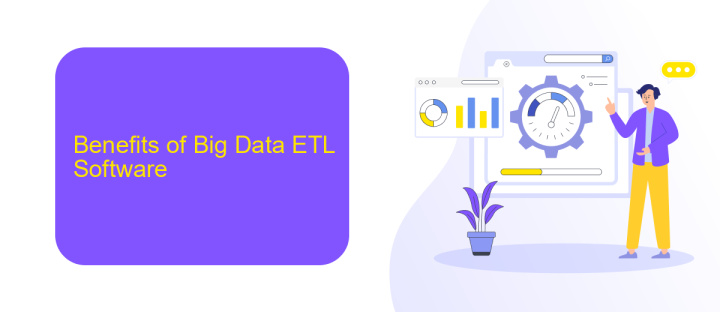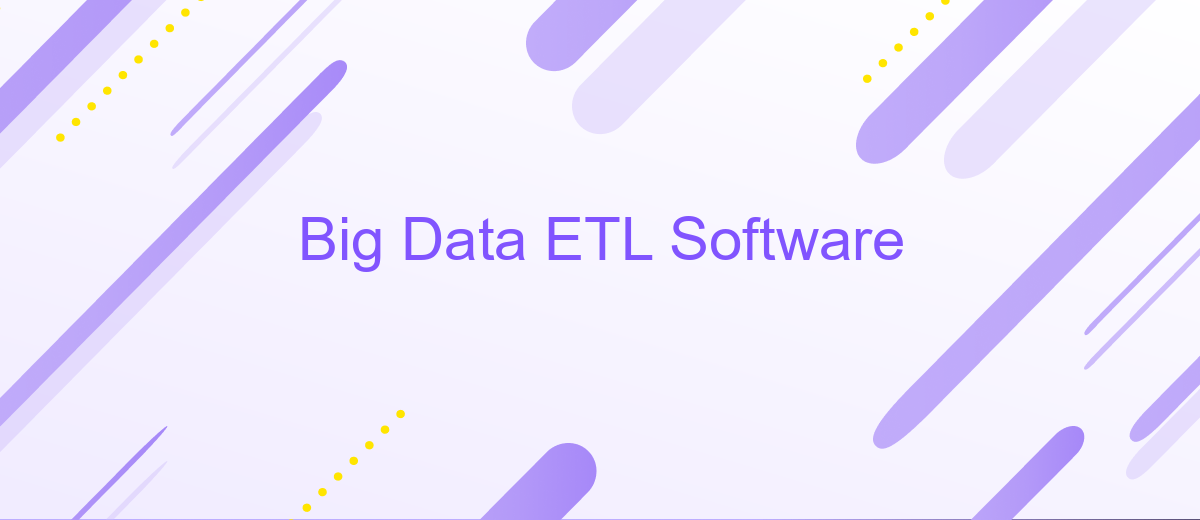Big Data ETL Software
Big Data ETL (Extract, Transform, Load) software plays a crucial role in managing and analyzing vast amounts of data. By automating the process of extracting data from various sources, transforming it into a usable format, and loading it into data warehouses, ETL tools empower businesses to make data-driven decisions, enhance operational efficiency, and gain valuable insights. Discover how ETL solutions can revolutionize your data strategy.
Introduction
In today's data-driven world, the ability to efficiently extract, transform, and load (ETL) vast amounts of data is crucial for businesses. Big Data ETL software plays a pivotal role in this process, enabling organizations to handle large datasets and derive actionable insights. These tools streamline the data integration process, ensuring data accuracy and consistency across various sources.
- Data Extraction: Collecting data from multiple sources such as databases, APIs, and flat files.
- Data Transformation: Cleaning, enriching, and converting data into a suitable format for analysis.
- Data Loading: Moving the transformed data into a data warehouse or other storage systems.
Effective ETL solutions, like ApiX-Drive, offer seamless integration capabilities, allowing businesses to connect various data sources without extensive coding. This not only saves time but also reduces the risk of errors, ensuring reliable data processing. As a result, organizations can focus on data analysis and decision-making, rather than the complexities of data management.
Benefits of Big Data ETL Software

Big Data ETL (Extract, Transform, Load) software provides numerous benefits for businesses by streamlining data processing workflows. One of the primary advantages is the ability to handle vast amounts of data from multiple sources efficiently. This capability ensures that businesses can make data-driven decisions in real-time, enhancing their operational efficiency and competitive edge. Additionally, ETL tools automate the data transformation process, reducing the likelihood of human error and ensuring data consistency and accuracy across different platforms.
Another significant benefit is the integration capabilities offered by modern ETL software. For instance, services like ApiX-Drive facilitate seamless integration between various data sources and destinations, allowing businesses to automate and streamline their data flows without extensive coding. This not only saves time but also reduces the complexity involved in managing multiple data pipelines. Furthermore, ETL software often includes robust security features, ensuring that sensitive data is protected throughout the extraction, transformation, and loading processes, thus maintaining data integrity and compliance with regulatory standards.
How to Choose the Right Big Data ETL Software

Choosing the right Big Data ETL software is crucial for efficient data management and analysis. The right tool can streamline your data processes, ensure data quality, and integrate seamlessly with your existing systems. Here are key factors to consider when making your selection:
- Scalability: Ensure the software can handle your current data volume and scale as your data grows.
- Integration Capabilities: Look for tools that easily integrate with your data sources and other systems. Services like ApiX-Drive can simplify these integrations.
- Performance: Evaluate the software’s ability to process data quickly and efficiently.
- Usability: Choose a user-friendly interface that requires minimal training for your team.
- Cost: Consider the total cost of ownership, including licensing, maintenance, and potential hidden costs.
By carefully evaluating these factors, you can select Big Data ETL software that meets your organization’s needs, enhances productivity, and supports your data-driven decision-making processes. Don't forget to leverage integration tools like ApiX-Drive to streamline and automate your data workflows.
Market Trends and Future Prospects

The Big Data ETL software market is experiencing significant growth due to the increasing volume of data generated by businesses. As organizations seek to harness the power of big data for insights and decision-making, the demand for efficient ETL tools is on the rise. This trend is expected to continue as more industries recognize the value of big data analytics.
One major trend in the market is the shift towards cloud-based ETL solutions. Cloud platforms offer scalability, flexibility, and cost-effectiveness, making them an attractive option for businesses of all sizes. Additionally, the integration of artificial intelligence and machine learning into ETL processes is enhancing data processing capabilities, enabling more sophisticated data analysis.
- Increasing adoption of cloud-based ETL solutions
- Integration of AI and machine learning in ETL processes
- Growing importance of real-time data processing
- Expansion of ETL tools into new industries
Looking ahead, the future of Big Data ETL software appears promising. Services like ApiX-Drive are making it easier for businesses to set up integrations and automate data workflows, further streamlining ETL processes. As technology continues to evolve, we can expect more innovative solutions that will drive the market forward, helping organizations to unlock the full potential of their data.


Conclusion
In conclusion, Big Data ETL software plays a vital role in transforming raw data into valuable insights, enabling businesses to make informed decisions. The ability to efficiently extract, transform, and load data from various sources into a unified repository is essential for leveraging the full potential of big data. As the volume and complexity of data continue to grow, the demand for robust ETL solutions will only increase.
Moreover, integrating ETL processes with other business applications can significantly enhance data accessibility and usability. Tools like ApiX-Drive simplify the integration of various services, ensuring seamless data flow and real-time synchronization. By leveraging such integration platforms, organizations can streamline their data management workflows, reduce manual efforts, and enhance overall efficiency. As we move forward, the continuous evolution of ETL software and integration tools will remain crucial for harnessing the power of big data.
FAQ
What is ETL in the context of Big Data?
Why is ETL important for Big Data?
What are the key features to look for in Big Data ETL software?
How can I automate ETL processes for Big Data?
What are some common challenges faced during Big Data ETL processes?
Apix-Drive is a simple and efficient system connector that will help you automate routine tasks and optimize business processes. You can save time and money, direct these resources to more important purposes. Test ApiX-Drive and make sure that this tool will relieve your employees and after 5 minutes of settings your business will start working faster.

